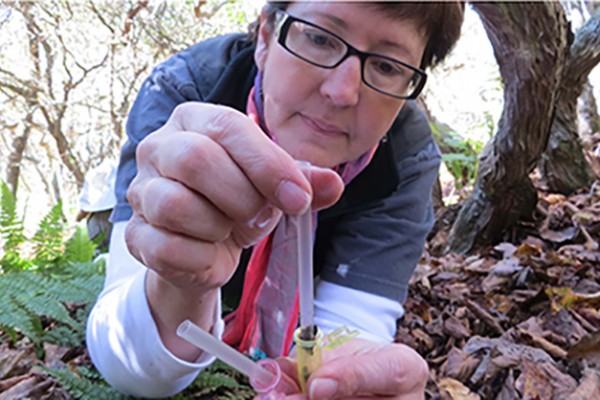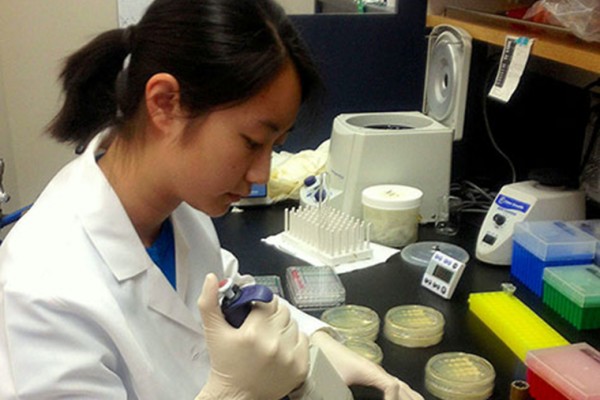Eight of 20 Arch Grants winners are affiliated with the university
That the WUSTL-connected contingent comprises 40 percent of this year’s Arch Grant winners is no surprise to H. Holden Thorp, PhD, provost and executive vice chancellor for academic affairs.
Up close with the WUSTL-affiliated Arch Grants winners
Get an up close look at the eight WUSTL-affiliated 2014 Arch Grant winners.
Interdisciplinary efforts on economic fragility spark new book, May 28 policy discussion in D.C.
In an effort to study causes and find solutions, Washington University in St. Louis faculty from across disciplines are examining economic insecurity through the university’s Livable Lives Initiative. One of the products of this interdisciplinary collaboration is a new book, “Working and Living in the Shadow of Economic Fragility.”
WUSTL to race wild strain of amoeba in World Dicty Race 2014
Biology researchers at Washington University in St. Louis are placing their bets on the wild side as they prepare a pack of social amoeba for competition Friday, May 16, in the first-ever Dicty World Race, an international science competition that carries a $5,000 prize for the single-celled organism deemed to be the “smartest and fastest” in negotiating a microscopic maze.
Documentary about black, gay men with depression to be shown May 18 at history museum
Project ARK, with support from the Substance Abuse and Mental Health Services Administration’s new media project, will mark National Prevention Week with a screening of the documentary “You Are Not Alone” at 6:30 p.m. Sunday, May 18, at the Missouri History Museum, 5700 Lindell Blvd., in Forest Park.
Gephardt Institute selects new cohort of Civic Scholars
The Gephardt Institute for Public Service selected eight sophomores for its fourth cohort of the Civic Scholars Program. Civic Scholars enroll in two years of academic coursework related to civic leadership and are mentored to prepare for a life dedicated to public service. They also carry out a civic project the summer before their senior years.
Commencement 2014 event speakers announced
More than a dozen distinguished individuals will speak at Commencement-related events later this month for graduates and their friends and families. The weeklong celebration culminates at 8:30 a.m. Friday, May 16, with WUSTL’s 153rd Commencement ceremony in Brookings Quadrangle.
WUSTL undergraduate sells Farmplicity, startup that began as class project
An undergraduate success story: Jolijt Tamanaha spent her last weeks of junior year at Washington University in St. Louis making a deal to sell a startup she co-founded called Farmplicity — an online marketplace that matches restaurants with local farmers — founded in a course through Olin Business School called The Hatchery.
A&S teaching assistants recognized for excellence
Richard J. Smith, PhD, dean of the Graduate School of Arts & Sciences, presented the school’s Dean’s Award for Teaching Excellence to 17 teaching assistants for exemplary performance. Stacy Davis, a fifth-year PhD candidate in Spanish, was among those recognized during an April 24 ceremony.
Huang wins this year’s Spector Prize
The Spector Prize, first awarded in 1974, recognizes academic excellence and outstanding undergraduate achievement in research. Students are nominated by their research mentors for outstanding research that has made substantial contributions to a field. This year, the prize has been awarded to Deborah Huang, who plans to
graduate this month with a major in biochemistry and molecular biology
and a minor in public health.
View More Stories


